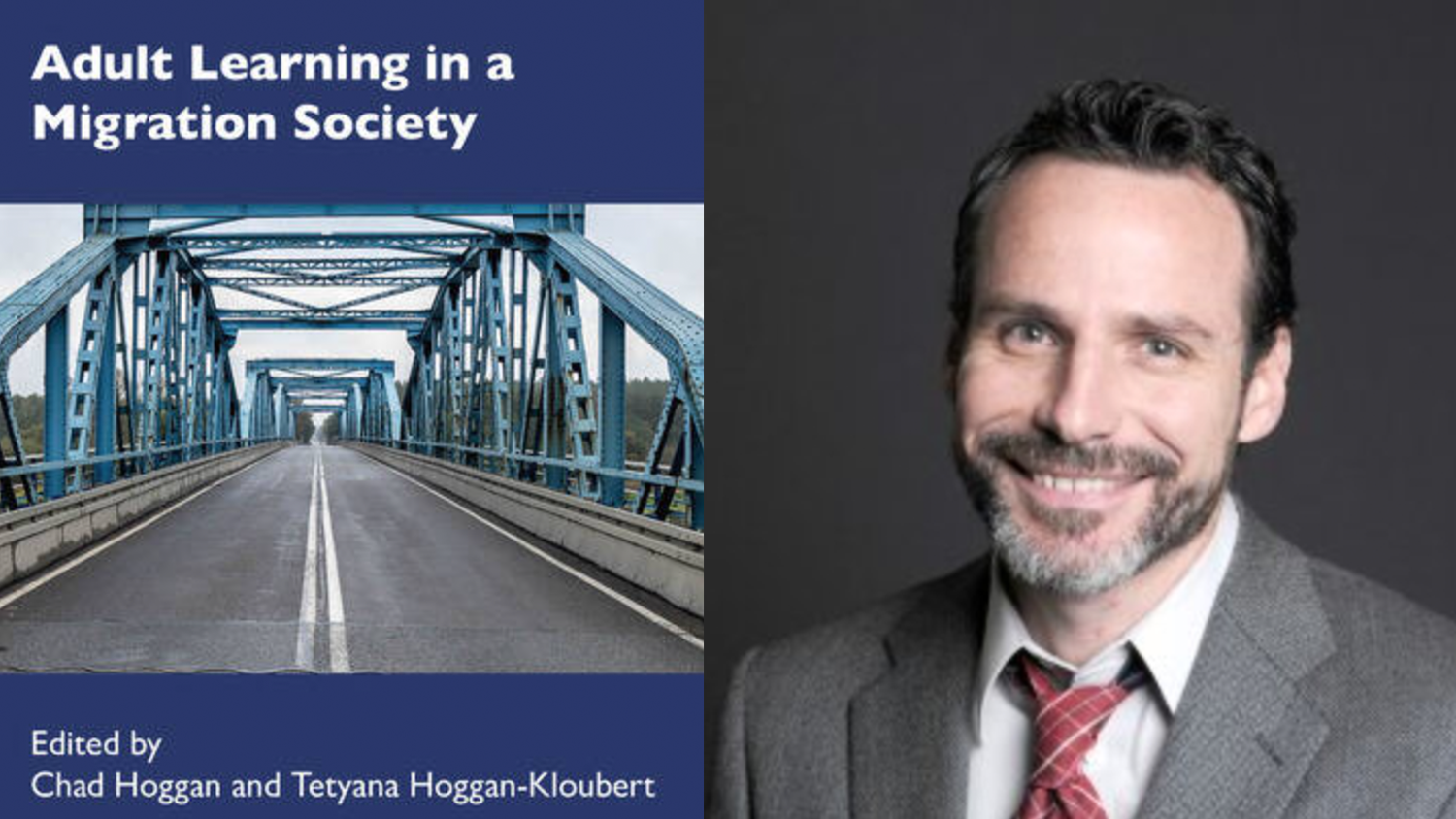Book Edited by Associate Professor Chad Hoggan Explores the Role of Adult Education in Migration Societies

As part of his scholarly reassignment in Germany during the Spring 2020 semester, NC State College of Education Associate Professor Chad Hoggan co-organized a Migration Research Symposium.
During this symposium, Hoggan and more than a dozen other researchers noted that some of the most difficult learning challenges related to migration existed within the receiving society, rather than with migrants themselves. As a result of those conversations came Adult Learning in a Migration Society, a book co-edited by Hoggan in which scholars reflect on their observations and lessons learned from research on migration.
“The main purpose of this book is to bring to our collective attention that migration, its causes and its difficulties, are not simply other people’s problems. Many challenges related to migration are the result of deep biases, and we as a society can greatly alleviate them by beginning to think of migrants primarily as humans searching for a life of security and hope,” Hoggan said.
The book highlights individual stories of migrants, showcases innovative research methods and explores concepts and theories that might be usefully applied toward learning needs in a migration society. Wanting to create an international perspective on the role of adult education in addressing migration, stories from Austria, Cyprus, Estonia, Germany, Greece, Ireland, Italy, Malta, Sweden, the United Kingdom and the United States are represented in the chapters.
Although the book addresses the particularities of migration in each specific society, it has a focus on common challenges and questions, current practices and unresolved problems.
“We can perhaps be more objective about contentious topics such as migration when we view them from afar. So, I was interested in looking at migration challenges in Europe and through the lens of European researchers in the hope that it might provide insights for similar challenges in the United States,” Hoggan said.
In addition to editing the book, Hoggan is also the co-author of a chapter entitled “Embracing Transformation: Migration and Human Dignity.”
The chapter is a meta-reflection on a research study conducted by Hoggan and his co-author, Tetyana Hoggan-Kloubert, during the 2019-20 academic year with counselors and teachers who work directly with migrants in Germany, which recently became the second highest receiver of migrants in the world.
Their study analyzed the effectiveness of new systems and practices by inquiring into the unmet learning needs of migrants. Their findings assert that adult education must consider whether the goals, histories and aspirations of migrants are incorporated into curricula, whether educational practices and policies are oriented toward helping migrants develop agency and self-efficacy in a new society rather than just telling them what to do, and whether diversity and dialogue are promoted.
Hoggan and his co-author argue that learning in a migration society needs to go beyond solely addressing the learning needs of migrants to address the ways in which society as a whole is challenged to learn and develop, and how adult education can support that process.
“People in the process of migration will certainly always need to learn, in both cumulative and transformative ways. However, the more important learning is almost certainly that of society,” Hoggan said. “How are we, as societies, thinking about our cultural identities and how they are ‘threatened’ by newcomers? How do we categorize people between ‘us’ and ‘others’ and how might we begin thinking in terms of all people as deserving of human dignity regardless of where they are born?”
- Categories:


